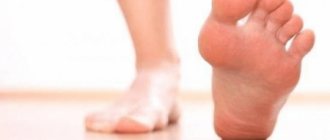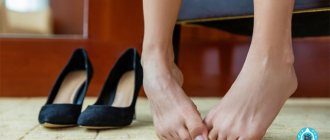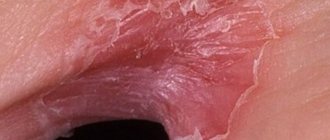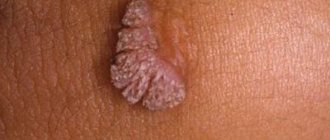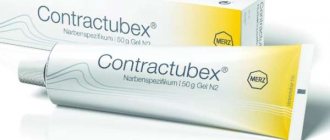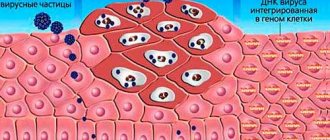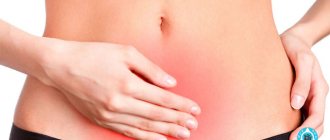| Appointment with a dermatologist at the clinic. Call a dermatologist at home. | Reception is strictly by appointment, make an appointment by phone: +7 | Prices for services | Reviews about the clinic |
Itching between the buttocks characterizes a localized state of irritation of the dermis or tissues of the final intestine, including the sphincter zone. The condition develops against the background of various directions of pathological influence, which subsequently, with a protracted course, manifests itself in the form of a general psycho-emotional disorder.
The feeling of irritation in the anus is a limited expression of the body's reaction, signaling the development of a pathological disorder associated with a functional deviation in its activity. A dermatologist will help determine the cause of the imbalance by conducting the necessary cycle of examination procedures, which makes it possible to use targeted therapeutic actions, eliminating the cause of the disease.
Make an appointment with a dermatologist by phone or by filling out the online form
| Select a clinic | Skin rash | Dermatologist | Dermatologist at home |
Answers to frequently asked questions about itchy skin:
- Which doctor treats itchy skin?
- What organs are affected by skin itching?
- Why is itchy skin dangerous?
- What tests should be taken for itchy skin?
- What diet is needed for itchy skin?
- What diseases does itchy skin indicate?
- Itchy skin for no apparent reason?
- What parasites cause itchy skin?
- What microorganisms cause itchy skin?
- How to get rid of itchy skin?
- Should a patient with itchy skin be isolated?
- Skin itching due to gastrointestinal diseases?
- What are the main causes of itchy skin?
- How to distinguish allergic itching from parasitic itching?
- How to prepare for an appointment with a dermatologist?
- How to get checked for skin diseases?
- What diseases does a dermatologist treat?
- What tests should be taken by a dermatologist?
- What diagnostics can a dermatologist perform in the clinic?
- Where to go with a skin disease?
1.General information
Itching is an extremely unpleasant skin reaction; if it “itches”, it is impossible to concentrate on something else, it is impossible to be distracted, to hide, to work, to take a forced position, to wait, to sleep. Only with the utmost effort of will can you restrain the persistent movement of your fingers in the direction of the itchy area, and sometimes this fails, and then the “combed” area itches even more, and you have to again...
The problem is greatly aggravated if the skin itches - and itches unbearably - in a place that cannot be declassified under any circumstances in the presence of other people. For example, in the perineum. And all that remains is to feign deep attention to the words of the interlocutor, but in reality make imperceptible movements on the chair, or shift from foot to foot, or sneak a glance at the watch: this torture must someday end.
Itching in the perineum, in principle, cannot be “normal,” “common,” or unimportant. This is a desperate attempt by the body to attract attention to the problem. Whatever the reasons (and there is no such thing as causeless itching), they are always pathological and always require a response, and the most appropriate response in this case is to see a doctor.
A must read! Help with treatment and hospitalization!
Why does itching occur between the buttocks?
The occurrence of unpleasant sensations in the anal area may be the result of an unknown exposure factor, being the primary manifestation of itching. Or develop against the background of the chronic course of an existing pathological condition, being a local manifestation in the form of a side symptom.
The main factors that provoke the development of an itchy sensation include the following conditions:
- Helminthic infection of the body with the penetration of parasites into the internal fornix of intestinal loops, to a greater extent causing irritation of the walls of the rectum. The pathology is diagnosed at any age, but is more common in childhood.
- Infections transmitted through the genital tract during sexual intercourse are characterized by the penetration of the pathogen into the tissues of the intestinal mucosa, disrupting their functionality and producing, in addition to itching, pain and the appearance of atypical discharge.
- The endocrine direction of the protracted course of the pathology has a sign of itching in the folds of the skin, including the area of the genital tract and anus.
- Pathology of the dermis with a violation of the integrity of the tissues of deep skin depressions, which represent the area between the buttocks, groin, and scrotum area. The process is based on violation of the rules of individual body care and prolonged work activities in a sitting position.
- Increased trauma to the tissues of the anus with the formation of cracks and hemorrhoids, when inflammation occurs, provokes the formation of itching and bleeding.
- Inflammation of the mucous membrane of the intestinal tract after eating hot and spicy foods, intoxication of the body due to long-term use of medications.
- A fungal infection of the skin layers creates an itchy sensation in the area between the buttocks.
- The process of inflammation of the external genital organs, with possible penetration into the rectal area, provokes the development of itching.
- Mechanical irritation of the area of the body between the buttocks through the use of underwear that does not match the size contributes to skin chafing and subsequent irritation.
Useful information on the topic of itchy skin:
- Dermatologist
- Itching due to skin diseases
- Itchy skin without manifestations on the skin
- Itchy skin in the groin
- Itchy skin on legs
- Itchy skin on hands
- Itchy skin on the back
- Itchy skin during pregnancy
- Itchy skin in liver diseases
- Itchy skin in children
- Itchy skin in the elderly
- Treatment of itchy skin
- Night skin itching
- Causes of itchy skin
2. Reasons
The first thing that comes to mind is basic hygiene. However, we are not just talking about uncomfortable sensations or the need for cleanliness, but about a painful, imperative (imperative) or compulsive (irresistible) urge to itch, and even if you do not visit the bathroom for years, it is hardly possible to bring yourself to such a state.
Itching is caused by moderate or weak, but continuous irritation of the nerve endings. This specific effect can be caused by a variety of physical, chemical, biological and even mental factors.
In particular, the skin can be irritated by accidentally falling small sharp particles (dust, sand, fiberglass, microscopic plant thorns, etc.), friction from synthetic, too tight or other poorly purchased underwear, and thermal damage.
Equally aggressive towards the skin nerve endings are certain groups of chemical compounds, including those contained in the saliva of stinging or blood-sucking insects (it is no coincidence that one of the intradermal mites that can parasitize on the human body is called “itchy itch”), as well as in caustic sap of some plants.
In addition, intense itching is a typical symptom of many dermatological and endocrine diseases (eczema, lichen, psoriasis, diabetes, autoimmune-allergic disorders, all kinds of dermatitis, etc.).
Paresthesia (false sensations of “pins and needles”, “crawling insects” and, in particular, scabies or itching) are found in the clinical picture of a number of mental disorders and psychopathological reactions, as well as organic lesions of the central nervous system.
Finally, one of the most common causes is infection of the perineal skin (especially if there are abrasions or microcracks) with bacterial, viral or fungal cultures.
Itching in the perineum in men and women, despite all the anatomical and physiological differences, has no fundamental etiopathogenetic specificity; it is caused by the factors listed above, as well as STDs (sexually transmitted diseases), hemorrhoids, and anal fissures. The likelihood of an allergic reaction to household chemicals and personal hygiene products, medications, herbs, latex, etc. does not depend on gender. As for “itchy” infectious and inflammatory processes, sexual dimorphism corrects only the localization of the lesion (vaginal dysbiosis, balanitis, adnexitis, prostatitis, etc.), while the mechanisms of biotoxic damage to nerve endings and irradiation of itching to the perineal area are universal .
Visit our Gynecology page
What not to do
In order not to aggravate the situation, you need to know what to do; doing this is not recommended. First of all, you should not self-medicate and buy medications following the recommendations of the pharmacist at the pharmacy. Since incorrectly prescribed treatment can cause an allergic reaction, thereby worsening the person’s condition. In addition, there is no need to squeeze pimples on the buttock, as this can lead to infection and the development of secondary skin infections. If it bothers you or a pimple in contact with the surface itches, it can be disinfected and pierced with a sterile needle. Then treat with alcohol and apply a patch and ointment.
3. Symptoms and diagnosis
When visiting a doctor (gynecologist, urologist, dermatologist, andrologist) with complaints of itching in the perineum, the following symptoms are important:
- redness;
- painful irritation;
- changes in the appearance of the skin;
- the presence of pimples or large blisters (in particular, those that appear solely in response to scratching, washing, or blotting with a towel);
- the presence of similar lesions in other areas (or localization only in the perineum);
- dependence on any situations, sex life, food consumed, a certain area, etc.;
- increased or relieved itching in response to mechanical friction.
All these nuances, as well as the dynamics, cyclicity, and duration of itching, are diagnostically informative; they should be monitored in advance and reported to the doctor.
Depending on the results of the examination, study of complaints and anamnesis, laboratory and, if necessary, instrumental studies are prescribed (urine and blood tests, microscopy of smears and sections, iodine and allergy tests, ultrasound, cystoscopy, etc.). In some cases, consultation with specialized specialists (infectious disease specialist, parasitologist, endocrinologist, psychiatrist, proctologist, etc.) is necessary.
About our clinic Chistye Prudy metro station Medintercom page!
First aid
To get rid of the rash and itching, you should visit a dermatologist. A specialist can make the correct diagnosis by determining the nature of the condition. However, before visiting a doctor, the following recommendations will help alleviate the condition:
- Take a shower at least 2 times a day with baby soap. During an exacerbation, it is forbidden to use loofahs and thickets. After the procedure, the skin should be soaked with cotton wool moistened with calendula tincture.
- Fucorcil can also be applied to the skin after a shower with a cotton swab. Before going to bed, you should lubricate your skin with Schinoren.
- Relaxes the feeling of swimming, sauna, visiting a solarium.
- Women are advised to give up thongs, as they literally begin to crumble on the skin.
- It is best to use natural swimming trunks as underwear.
- If the patient leads a sedentary lifestyle, a small warm-up is required every 30 minutes, which is useful for improving blood circulation.
- To dry out the rash, it is recommended to apply iodine to the rash.
- If the body begins to itch, then a sitz bath with a decoction of herbs such as chamomile, string, and celandine will help relieve this feeling.
4.Treatment
Itching in the perineum is not a disease, but only a symptom, and most often not the only one. Accordingly, desensitizing (reducing the sensitivity of skin receptors), anti-inflammatory, analgesic drugs have an auxiliary value and are prescribed symptomatically. The main goal is to find and eliminate the underlying disease, its causes and risk factors. Based on the diagnostic results, a course of etiopathogenetic therapy is prescribed: antiparasitic, antibiotic and/or antimycotic, in some cases psychotherapeutic, hormonal, proctological, etc. If a reliable cause-and-effect relationship is identified between itching in the perineum and the mechanical, chemical, and allergic factors described above, a full therapeutic effect is possible only if contact with such irritants (irritants) is excluded.
Prevention of itching on the butt
Foods that cause allergic reactions such as nuts, chocolate, coffee, citrus fruits, ginger, red fruits and vegetables should be reduced or eliminated completely. It is necessary to exclude the consumption of smoked, fried, pickled, salty and sweet foods, since itching on the buttocks often develops due to problems with the functioning of the intestines.
- As you know, it is better to prevent diseases than to treat them later, and itching too. Simple rules will help prevent skin irritation.
- It is worth making a choice in favor of natural linen;
- From sedentary work you need to do a warm-up every 30 minutes;
- A bath with a birch broom gives a good effect;
- Increased sweating is recommended when using baby powder;
- netoni wear tight clothes;
- Use scrubs at least once a week to clear clogged pores;
If you sit on a hard surface a lot, you'll need to use a soft cushion to soften the contact.
How to get rid of itching in the intergluteal space at home?
1 use of rectal suppositories and special ointments (in the presence of hemorrhoids);
2 taking medications that normalize the condition of the digestive tract (in case of exacerbation of chronic gastrointestinal diseases) and the nervous system (if itching is caused by stress);
3 the use of antibiotics (if there is a sexually transmitted infection) and antihistamines (if the itching is caused by an allergic reaction);
4 hormone therapy (if itching is associated with endocrine disorders).


